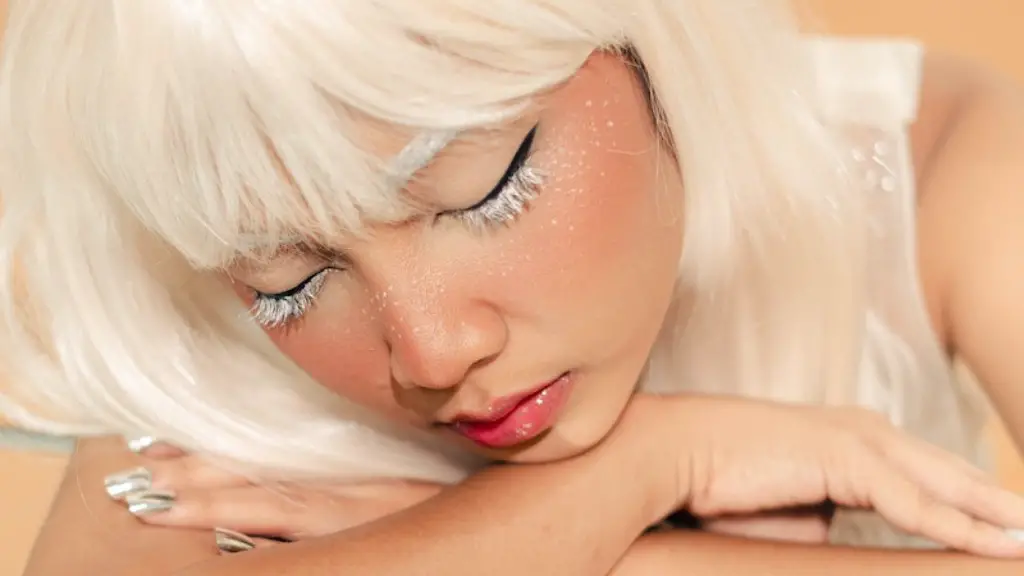Most people have experienced a falling dream at some point in their lives. These dreams can be caused by a variety of things, ranging from anxiety to sleep disorders. However, there is no one definitive interpretation of falling dreams. Some people believe that they symbolize feelings of insecurity or anxiety, while others interpret them as a sign of impending positive change. Regardless of their meaning, falling dreams are often unsettling and can leave the dreamer feeling disoriented and afraid.
There is no one answer to this question as dreams can be interpreted in many ways. Some people might interpret falling dreams as a symbol of insecurity or feeling out of control in their life. Others might interpret it as a sign of physical or emotional challenges. It is also worth noting that some dreams can be literal and point to a fear of literally falling or being in a dangerous situation. Ultimately, it is up to the individual to decide what their falling dream means to them.
Are Falling dreams normal?
Falling dreams are quite common and can be interpreted in a few ways. They may simply reflect feelings of inadequacy or a sense that your life is out of control. Dealing with your stressors may encourage less frightening dreams. Persistent nightmares may be due to an anxiety or sleep disorder. If your dreams are affecting your physical or mental health, it’s important to talk to your doctor.
The hypnagogic state is the transitional period between wakefulness and sleep. During this stage, you may experience hypnic jerks, which are common and normal. There is no need to worry about hypnic jerks, as they are not harmful.
What causes a falling dream
The hypnic jerk is an involuntary muscle movement that can occur when the body is in the transitional stage between wakefulness and light sleep, known as the hypnagogic state. This feeling can be triggered by a variety of things, including stress, fatigue, or even anxiety. While it may be annoying or even disturbing, the hypnic jerk is actually a normal part of falling asleep.
A hypnic jerk is a sudden muscle twitch that can cause the feeling of falling while sleeping or dreaming. Hypnic jerks typically occur moments before the first stage of sleep. About 70% of people have experienced hypnic jerk.
How common are falling dreams?
Falling dreams are very common and usually happen when we are feeling anxious or stressed. They often symbolize our fear of failure or feeling out of control. If you keep having falling dreams, it might be a good idea to talk to a therapist to help you deal with your anxiety.
There are 5 main types of dreams: normal dreams, daydreams, lucid dreams, false awakening dreams, and nightmares. Most people dream every night during REM sleep, though they may not remember all of their dreams. Dreams can be a way to process emotions and work through problems, and can often be symbolic. nightmares, in particular, can be a sign of something causing stress or anxiety in your life. If you have nightmares that are impacting your sleep or daily life, it may be worth talking to a therapist to explore what they may mean.
What are the rarest dreams?
Lucid dreams are thought to be the rarest type of dream. In a lucid dream, you are aware that you are dreaming but you continue to dream. Researchers believe that 55 percent of people experience these types of dreams at least once in their lives.
REM stands for Rapid Eye Movement and is a stage of sleep characterized by eye movement, increased brain activity, and dreaming. The longest recorded period of REM is one of 3 hrs 8 mins by David Powell (USA) at the Puget Sound Sleep Disorder Center, Seattle, Washington, USA on 29 April 1994.
What your dreams are telling you
Dreams are often about identity because they allow us to explore different aspects of ourselves that we may be repressing during waking hours. Through dreams, we can access different parts of our personality that we may be afraid to express in our everyday lives. Dreams can also help us to understand our deepest desires and needs, as well as the beliefs and perspectives that we hold. If we feel unfulfilled or undervalued in our waking lives, our dreams will often reflect that. By exploring our dreams, we can get in touch with our true selves and learn what we need to do to create more fulfillment in our lives.
Falling:
Falling is the most common recurring dream people have, according to a 2022 survey of 2,007 Americans conducted by mattress and sleep product company, Amerisleep. While the dream may be alarming, experts believe it is likely a metaphor for anxiety or insecurity in the dreamer’s life.
Being Chased:
Being chased in a dream is often a reflection of something the dreamer is running from in their real life, such as an uncomfortable situation or person. It may also be a sign that the dreamer is feeling overwhelmed or threatened.
Losing Teeth:
Losing teeth in a dream is often a symbol of powerlessness or vulnerability. Dreams about teeth falling out can also be a sign of anxiety or stress.
Cheating:
Dreaming about cheating on a partner or significant other may be a reflection of feelings of guilt or betrayal in the dreamer’s real life. It may also be a sign of insecurity or jealousy.
Naked in Public:
Dreaming of being naked in public is often a sign of feelings of insecurity, shame, or vulnerability. The dream may also be a metaphor for being exposed or caught in a difficult situation.
What is the darkest dream?
The Carnivalle is the last big event of the season and the Hanataz are in charge of security. The Hanataz are a marginalized people because of the high percentage of Blood-Touched members in their group. The Blood-Touched are people who have been infected with a blood-borne disease that makes them uncontrollably violent. The Hanataz are tasked with keeping the peace and protecting the Carnivalle goers from the Blood-Touched.
Dreams are a reflection of your recent state of mind, future possibilities, and changes that you have experienced.
Are there humans that don’t dream
There are a number of possible explanations for why people might report never dreaming. It could be that they simply don’t remember their dreams, or that they don’t have dreams that are vivid or interesting enough to remember. It’s also possible that they have a medical condition that prevents them from dreaming.
It is fascinating to think about how time would work in the dream state if it were different from the real world. Each hour in the real world would take two years and four months in the dream state. This would mean that a person could live a very long life in their dreams! It would also be interesting to see how events in the dream state would unfold over such a long period of time.
Are dreams 2 to 3 seconds long?
There is no definitive answer to the question of how long a dream can last. However, most dreams tend to be relatively short, lasting for a few seconds or up to 20-30 minutes. People are more likely to remember a dream if they are awoken during the REM (rapid eye movement) phase, when dreams are most vivid.
There are some risks associated with lucid dreaming, although more research is needed to confirm them. The most concerning potential dangers are disrupted sleep and mental health issues. Lucid dreaming could disrupt your sleep if you have difficulty distinguishing between waking reality and the dream world. This could lead to sleep problems and fatigue. Lucid dreaming could also worsen existing mental health conditions, or trigger new ones. If you have a history of mental health problems, or if you experience any negative emotions while lucid dreaming, it’s important to speak with a doctor or mental health professional.
Final Words
There are many different interpretations of what falling dreams may mean. Some believe that falling dreams represent a fear of death or a fear of losing control. Others interpret falling dreams as a sign of insecurity or a lack of confidence. Still others believe that falling dreams may symbolize a need for release or a desire to let go of something. Whatever the interpretation, falling dreams are often associated with feelings of anxiety or dread.
There’s no one-size-fits-all answer to this question, as the meaning of falling dreams can vary depending on the individual’s personal context and life experience. However, some believe that falling dreams may symbolize feelings of insecurity, anxiety, or fear in the dreamer’s life. Others interpret falling dreams as a sign of physical or emotional exhaustion. Ultimately, it’s up to the dreamer to determine what their falling dream means to them.





